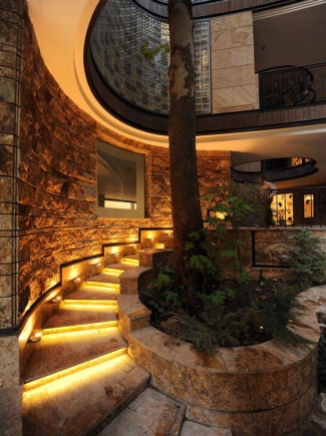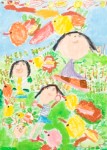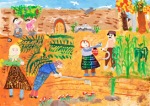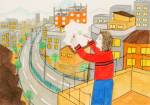Mahlagha Mallah, 96, is an environmental activist who has not produced any waste over the past 60 years.

Earlier in March, Mehr News Agency ran a report on the founding mother of Iran’s environmental protection and her waste minimization efforts.
Mahlagha Mallah, who holds a Ph.D. from Sorbonne in Sociology, is the founder and managing director of Women’s Society against Environmental Pollution. She was praised as the 2010 personality of the year in the field of “Natural Heritage and Environment” for her decades-old struggle to preserve the environment.
Back from France where she got her Ph.D. and learned library science, she started to work in a Tehran University library.
“I asked all embassies [in Tehran] to provide me with the environmental information of their countries. After studying the issue, I came to the conclusion that collective measures are needed to do something for the environment. I wanted to teach people how to protect the environment.”
Dr. Mallah was not the first in her family who tried not to produce waste. “My mom would not place the waste outside the house. Back then people produced less garbage and each family would recycle –one way or another – their waste at home. They used to give food leftovers to the poultry.
A rural lifestyle helped people to use less paper and plastic and do less damage to the environment in the process. But today new sources of pollution cause new diseases. Something must be done about it.”
For the past 60 years, Mrs. Mallah and her family have not placed any waste in the garbage can to be collected unless it was recyclable. They bury the waste in a pit in their yard to let it turn into fertilizer.
“We still don’t use plastic bottles. In the past I used to take a cloth shopping bag to store to help the environment, and I’d encourage others to follow suit. We need to stop harming the environment so that future generations can use this natural heritage.”
Mrs. Mallah talks with people in different neighborhoods and teachers at schools about the need for waste sorting. […] We can run environmental programs to raise public awareness. We love nature and the environment and we do not work to get money in return.
Dr. Mallah has always offered great ideas about environment protection. “We can do more for a plan which segregates the [dry and wet] waste at households. We can teach women in this regard. […]
“Municipalities can separately collect disposable batteries, which leave a destructive impact on the environment. The used cooking oil – which harms the environment after entering the sewage system – can be collected, refined and reprocessed, exactly like used engine oil.” […]
Mrs. Mallah says the waste produced in Tehran is too much. Everyone can do their share and help reduce waste production. People can turn the waste to compost –a fertilizer for plants in organic farming – or Vermicompost – which is light and odorless. […]
Other great Iranian women: The other Iran | Women
Source: Iran Front Page



























































